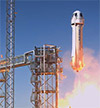Begin with access to the continental market of North America. Nearly half a billion consumers live there, and their economic activity adds up to a GDP of about US$20 trillion. Canada shares more than 5,000 miles of border with the United States, and more than $2 billion in trade crosses that border every day. Thanks to the North American Free Trade Agreement, those who invest in Canada get preferential access to that entire, giant market.
If that’s not enough, consider what is possible upon implementation of CETA, the Canada-European Union Comprehensive Economic and Trade Agreement. It passed the European Parliament earlier this year, and needs approval from EU national parliaments in order to take full effect. But when it does, that opens the door to another half billion consumers with a similar level of GDP, eliminating the vast majority of tariffs.
Clearly, from the perspective of international trade, Canada can be a highly lucrative base of operations. Truth be told, it’s a lucrative market in and of itself, not even counting what lies beyond the border. It’s a nation of more than 36 million people, with a GDP of more than US$1.5 trillion. Scotiabank predicts that the GDP will be up by 2.7 percent by the end of 2017, its best showing since 2011 — that would make Canada one of the industrialized world’s fastest-growing nations.
When Forbes ranked the best countries for doing business, it placed Canada well ahead of the United States. None of this is a secret. Canada’s business advantages have been turning heads for quite some time now. Consider some of these accolades:
- U.S. News & World Report publishes an annual “Best Countries” survey, and the most recent edition ranks Canada #2 overall. In the subcategories, Canada is the leader in quality of life, the leader in education, and second as a place to locate a corporate headquarters, among other noteworthy accolades. As the publication observes, “Canada is a high-tech industrial society with a high standard of living.” And as for corporate headquarters advantages, the magazine points out Burger King’s corporate move across the border to Ontario a few years ago, resulting in tax savings in the hundreds of millions of dollars.
- The World Bank Group lists Canada as the top country in the G20 for starting a business, and second among all of the world’s countries. Canada also ranks highly in ease of getting credit, and protection of minority investors.
- KPMG’s Competitive Alternatives report lists Canada as having the second-lowest business costs of the countries studied, behind only Mexico. Its costs come in at just 77.5 percent of the costs in the United States. It should be little surprise, then, that when cost rankings are drilled down on a city basis, Canadian cities tend to rank as the most favorable. Among the biggest Canadian and American cities, the three most favorable are Toronto, Vancouver, and Montreal. And when costs are compared by industry, Canada beats the U.S. across virtually all of the categories.
- The OECD’s “Economic Outlook” paints a positive picture for Canada’s economic future, with healthy GDP growth, reasonable inflation, and a manageable unemployment rate.
- The OECD’s “Better Life Index” ranks Canada highly in quality of life — tops among G7 nations and fifth overall.
- When Forbes ranked the best countries for doing business, it placed Canada well ahead of the United States.
Consider innovation. Canadian governmental entities work hard to create an environment where tomorrow’s ideas can readily rise to the surface and thrive. Just one example of the effort is the Scientific Research and Experimental Development (SR&ED) tax incentive program. Foreign investors that have businesses established in Canada can apply for these incentives that help defray the cost of employees engaged in R&D, materials, overhead, and contract expenditures.
The country ranks at or near the top of a wide range of education-related metrics, including the percentage of the workforce that has post-secondary education, the skills and capacities that go into the World Economic Forum’s Human Capital Index, and the educational attainment levels of Canadian schoolchildren. It takes smart minds to succeed at R&D, of course, which is why education gets so much high-level attention in Canada. The country ranks at or near the top of a wide range of education-related metrics, including the percentage of the workforce that has post-secondary education, the skills and capacities that go into the World Economic Forum’s Human Capital Index, and the educational attainment levels of Canadian schoolchildren.
Most industries benefit from Canadian levels of ingenuity and work ethic, including some of the world’s most cutting-edge and high-growth sectors. For example, Canada is a leader in both the development and adoption of Internet of Things technologies. The term refers to the wide range of devices and objects plugged into the Internet for one advanced reason or another. This was a $3 billion market in Canada in 2013, according to analyst IDC, and that should more than double by 2018. Helping make that happen is the nation’s low software-development cost structure and the more than 100 Canadian master’s level programs in various applicable disciplines.
Another example is robotics. Led by such advanced sectors as automotive manufacturing, unmanned aerial vehicles, and space technologies, Canadian robot orders are noticeably higher than across the continent as a whole. So are Canadian robotic shipments. Canada is even home to the continent’s first fully digital hospital, which employs a range of robotic technologies in the delivery of patient care.
That’s just a small portrait of the opportunities associated with a Canadian business address. Plenty of other business sectors have equally compelling stories to share, from big data to biopharmaceuticals, financial services to functional foods, virtualization to wireless communications.




